Peanut
How to submit an article:
- Registered users can submit any published journal article that has a unique DOI (Digital Object Identifier) name or link to Research Hub.
- For example, you can paste the full DOI link:
https://doi.org/10.1109/5.771073or just the DOI name:10.1109/5.771073into the field above and click submit. - The person who is first to submit a valid article to Research Hub will forever be credited for it, and every article submission earns you +6 Research Points.
Published research studies are articles that present the findings of original research that has undergone a peer-review process and has been made publicly available in scholarly journals, books or other media.

Peanut (Arachis hypogaea L.) seeds and by-products in metabolic syndrome and cardiovascular disorders: A systematic review of clinical studies
2024 Jan Phytomedicine Nunes YC, Santos GO, Machado NM, Otoboni AMMB, Laurindo LF, Bishayee A, et al.
Peanuts and their products, containing phytochemicals, can improve metabolic parameters and have the potential to be used as a sustainable and low-cost alternative for the prevention and treatment of MetS and CVD.
Systematic Review Review Article Peanut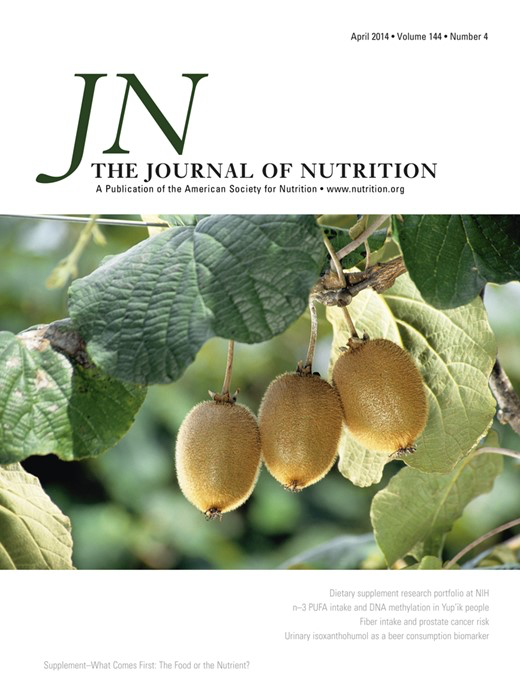
Long-Term Consumption of Nuts (Including Peanuts, Peanut Butter, Walnuts, and Other Nuts) in Relation to Risk of Frailty in Older Women: Evidence from a Cohort Study
2023 Mar The Journal of Nutrition Wang R, Hannan MT, Wang M, Schwartz AW, Lopez-Garcia E, Grodstein F
Cohort Study Peanut FrailtyRegular nut consumption, particularly peanuts and walnuts, is associated with a lower incidence of frailty in aging female populations.
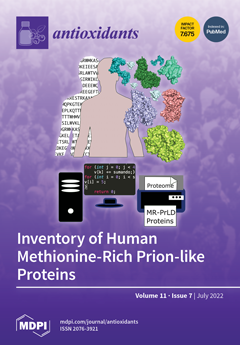
Urinary Phenolic Metabolites Associated with Peanut Consumption May Have a Beneficial Impact on Vascular Health Biomarkers
2023 Mar 11 Antioxidants Parilli-Moser I, Domínguez-López I, Vallverdú-Queralt A, Hurtado-Barroso S, Lamuela-Raventós R
Consumers of SRP and PB exhibited significantly higher excretion of specific UPMs, including enterodiol glucuronide, 3-hydroxybenzoic acid, vanillic acid sulfate, p-coumaric acid, coumaric acid glucuronide I and II, and isoferulic acid, compared to the control group. The peanut interventions also led to an improvement in prostacyclin I2 (PGI2) levels and the thromboxane A2 (TXA2):PGI2 ratio. Higher post-intervention levels of UPMs were correlated with positive changes in vascular biomarkers, indicating a potential positive impact of peanut product consumption on vascular health.
Clinical Study Randomised Controlled Trial Peanut Cardiovascular Disease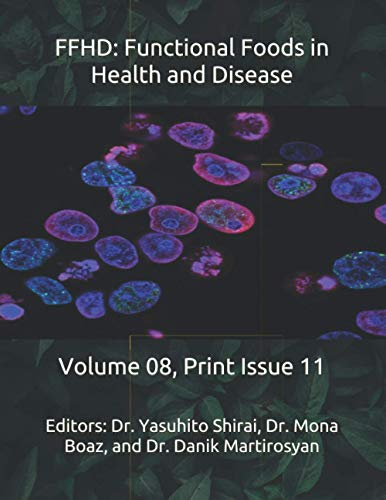
The effect of daily peanut consumption on cognitive function and indicators of mental health among healthy young women
2022 Dec 21 Functional Foods in Health and Disease Reeder N, Tolar-Peterson T, Adegoye GA, Dickinson E, McFatter E
The study, a pre-post test involving 65 women (32 in the peanut group and 29 in the control group), revealed a significant difference in reaction time, with the control group showing a greater increase in scores. Within the peanut group, there was a significant positive effect on processing speed. However, no significant effects on depression, anxiety, or stress scores were observed. The study concludes that further research is needed to fully understand the influence of different types of peanut products on cognition.
Clinical Study Peanut Cognitive Function
Effect of Peanut Consumption on Cardiovascular Risk Factors: A Randomized Clinical Trial and Meta-Analysis
2022 Apr 01 Frontiers in Nutrition Parilli-Moser I, Hurtado-Barroso S, Guasch-Ferré M, Lamuela-Raventós RM
Meta-Analysis Randomised Controlled Trial Peanut TriglycerideRegular peanut consumption appears to positively influence lipid metabolism, reducing levels of triglycerides in the blood.
Research insights are moderated by the Research Hub team and offer an at-a-glance overview of interesting research findings.

2023 The Journal of Nutrition
Regular nut consumption, particularly peanuts and walnuts, is associated with a lower incidence of frailty in aging female populations.
Cohort Study Frailty
Long-Term Consumption of Nuts (Including Peanuts, Peanut Butter, Walnuts, and Other Nuts) in Relation to Risk of Frailty in Older Women: Evidence from a Cohort Study
Wang R, Hannan MT, Wang M, Schwartz AW, Lopez-Garcia E, Grodstein F

2022 Frontiers in Nutrition
Regular peanut consumption appears to positively influence lipid metabolism, reducing levels of triglycerides in the blood.
Meta-Analysis Triglyceride
Effect of Peanut Consumption on Cardiovascular Risk Factors: A Randomized Clinical Trial and Meta-Analysis
Parilli-Moser I, Hurtado-Barroso S, Guasch-Ferré M, Lamuela-Raventós RM
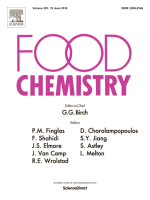
2020 Food Chemistry
Soaking nuts doesn't increase the bioavailability of their nutrients, instead, it reduces the mineral concentration, particularly in chopped nuts.
Experimental Study Activating Nuts Bioavailability Nuts
Does ‘activating’ nuts affect nutrient bioavailability?
Kumari S, Gray AR, Webster K, Bailey K, Reid M, Kelvin KAH, et al.
Review Articles
Review articles summarise and critically evaluate the current state of research on a specific topic or field by synthesising multiple primary research studies.
Clinical Trials
Clinical trials are research studies that involve people and are conducted to evaluate the safety and efficacy of new treatments or interventions, such as drugs, medical devices, or behavioural therapies.

Urinary Phenolic Metabolites Associated with Peanut Consumption May Have a Beneficial Impact on Vascular Health Biomarkers
2023 Mar 11 Antioxidants Parilli-Moser I, Domínguez-López I, Vallverdú-Queralt A, Hurtado-Barroso S, Lamuela-Raventós R
Consumers of SRP and PB exhibited significantly higher excretion of specific UPMs, including enterodiol glucuronide, 3-hydroxybenzoic acid, vanillic acid sulfate, p-coumaric acid, coumaric acid glucuronide I and II, and isoferulic acid, compared to the control group. The peanut interventions also led to an improvement in prostacyclin I2 (PGI2) levels and the thromboxane A2 (TXA2):PGI2 ratio. Higher post-intervention levels of UPMs were correlated with positive changes in vascular biomarkers, indicating a potential positive impact of peanut product consumption on vascular health.
Clinical Study Randomised Controlled Trial Peanut Cardiovascular Disease
Effect of Peanut Consumption on Cardiovascular Risk Factors: A Randomized Clinical Trial and Meta-Analysis
2022 Apr 01 Frontiers in Nutrition Parilli-Moser I, Hurtado-Barroso S, Guasch-Ferré M, Lamuela-Raventós RM
Meta-Analysis Randomised Controlled Trial Peanut TriglycerideRegular peanut consumption appears to positively influence lipid metabolism, reducing levels of triglycerides in the blood.
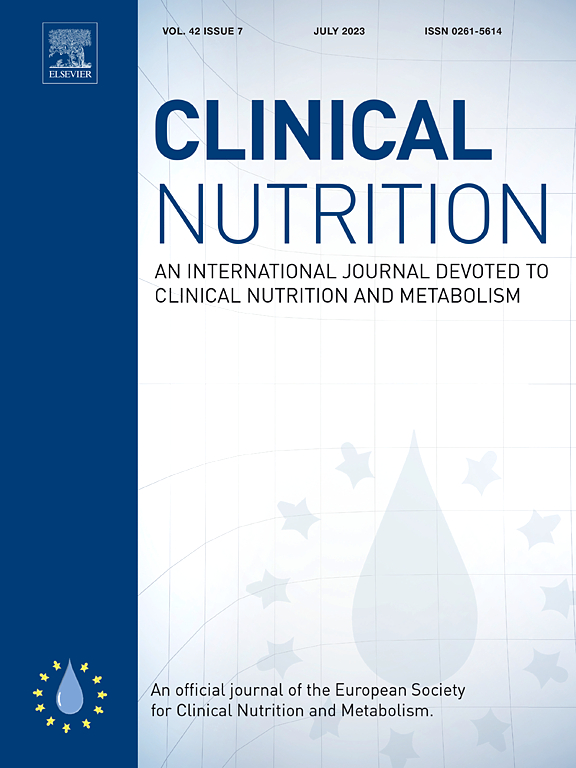
Consumption of peanut products improves memory and stress response in healthy adults from the ARISTOTLE study: A 6-month randomized controlled trial
2021 Nov Clinical Nutrition Parilli-Moser I, Domínguez-López I, Trius-Soler M, Castellví M, Bosch B, Castro-Barquero S, et al.
Regular peanut and peanut butter consumption may enhance memory function and stress response in a healthy young population.
Randomised Controlled Trial Stress Peanut Cognitive Function Peanut ButterStudy Protocols
Published study protocols are detailed plans that outline the objectives, methodology, statistical analyses, and organisation of a research study that have been made publicly available for others to review and use as a reference.
Presentation Slides

Cohort Study
Regular nut consumption, particularly peanuts and walnuts, is associated with a lower incidence of frailty in aging female populations.
Wang R, Hannan MT, Wang M, Schwartz AW, Lopez-Garcia E, Grodstein F

Meta-Analysis
Regular peanut consumption appears to positively influence lipid metabolism, reducing levels of triglycerides in the blood.
Parilli-Moser I, Hurtado-Barroso S, Guasch-Ferré M, Lamuela-Raventós RM

Experimental Study
Soaking nuts doesn't increase the bioavailability of their nutrients, instead, it reduces the mineral concentration, particularly in chopped nuts.
Kumari S, Gray AR, Webster K, Bailey K, Reid M, Kelvin KAH, Tey SL, Chisholm A, Brown RC
Executive Summary
Write an executive summary in the form of a blog article on the topic of "Research into Chinese medicine treatment for Peanut" summarising the research below and using language that can be easily understood by patients and avoiding medical jargon using a professional and caring tone of voice.
Write an executive summary in the form of a blog article on the topic of "Researched Chinese medicine treatments for Peanut" summarising the research below in an objective and easy to understand way, and using language that can be easily understood by patients. Group the article into Chinese medicine treatments first, followed by nutrition and other treatments. Avoid using medical jargon and use a professional and caring tone of voice.
Write me a concise but easy to understand executive summary on the topic of "Chinese medicine treatments for Peanut" based on the following research that I will give you. Your summary should be 2 paragraphs long in Australian English spelling and include references to the studies.
A Cohort Study published in 2023 in the journal The Journal of Nutrition found that Regular nut consumption, particularly peanuts and walnuts, is associated with a lower incidence of frailty in aging female populations. The methodology of the study includes a population-based observational study of nonfrail women aged 60 and above from 11 states across the US, from the Nurses' Health Study. The outcome focused on incidence of frailty, defined through the FRAIL components such as fatigue, lower strength, reduced aerobic capacity, multiple chronic conditions, and significant weight loss. These were assessed every four years from 1992 to 2016. Food Frequency Questionnaires were used to examine the intake of peanuts, peanut butter, walnuts, and other nuts every four years from 1990 to 2014. Total nut consumption was calculated and categorized into varying serving sizes, and the relation of intake of each type of nut with frailty was examined separately using Cox proportional hazard models, adjusted for various factors such as age, smoking, BMI, diet quality, and medication use. In discussing the results, out of 71,704 participants, 14,195 frailty cases arose over a million person-years. Notably, regular consumption of nuts, particularly peanuts and walnuts, showed a significant inverse relation with frailty. That is, a higher intake of these types of nuts were associated with lower cases of frailty. However, the same didn't apply to peanut butter. This affirms the potential benefits of regular nut consumption in aging female population's health and well-being.
A Meta-Analysis published in 2022 in the journal Frontiers in Nutrition found that Regular peanut consumption appears to positively influence lipid metabolism, reducing levels of triglycerides in the blood. In the ARISTOTLE study, a randomized control trial was conducted with 63 participants who consumed either 25g/day of skin roasted peanuts, two tablespoons of peanut butter per day, or two tablespoons per day of a control butter based on peanut oil alongside their usual diet for a period of 6 months. This was done to understand the impact of regular peanut consumption on anthropometric, biochemical, and clinical measurements. Additionally, a meta-analysis was carried out incorporating data from several clinical trials, including the aforementioned ARISTOTLE study, to further consider the effects of consuming peanuts and peanut butter in both healthy individuals and those at a high cardiometabolic risk. The findings from the ARISTOTLE study indicated that lower total cholesterol/HDL-cholesterol and LDL-cholesterol/HDL-cholesterol ratios were observed in the group consuming skin roasted peanuts compared to the control butter group. Furthermore, the meta-analysis of clinical trials highlighted an association between peanut consumption and a decrease in triglycerides. It was seen that healthy consumers had lower total cholesterol and LDL-cholesterol/HDL-cholesterol ratios compared to control groups. However, it was also discovered that individuals at a high cardiometabolic risk experienced an increase in body weight following the peanut interventions, despite no change in body fat or body mass index. From the dose-response analyses, it was inferred that body weight slightly escalated with higher dosages of peanuts.
A Experimental Study published in 2020 in the journal Food Chemistry found that Soaking nuts doesn't increase the bioavailability of their nutrients, instead, it reduces the mineral concentration, particularly in chopped nuts. The study examined the effects of different soaking regimes on the phytate and mineral concentrations in whole and chopped almonds, hazelnuts, peanuts, and walnuts. Four treatments were employed: raw, soaking for 12 hours in salt solution, soaking for 4 hours in salt solution, and soaking for 12 hours in water. To analyze phytate concentrations, high-performance liquid chromatography was used and the mineral concentrations were evaluated by inductively coupled plasma mass spectrometry. In the evaluation of the results, it was observed that the differences in phytate concentrations between treated and untreated nuts were minimal, ranging from -12% to +10%. On the other hand, the soaking process resulted in diminished mineral concentrations, notably for chopped nuts. Furthermore, there were no improvements noted in the phytate:mineral molar ratios as a result of the soaking technique. Therefore, this study effectively disproves the notion that 'activating' nuts yields a greater nutrient bioavailability.
Moderation Tools
Topic
Sign In
Users not signed in are limited to viewing the 5 most recent items of content.